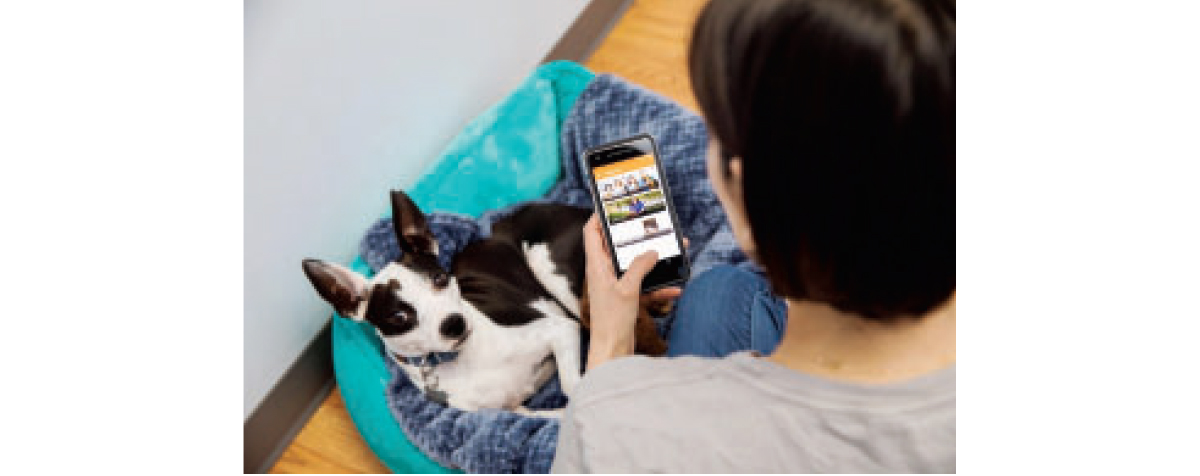With more than half of all households across the nation home to a pet, it’s fair to say that Americans clearly adore their non-speaking companions. During this time of mandated social isolation to help curb the spread of COVID-19, which has infected over 14,000 people in Los Angeles, many locals previously without a pet have chosen to adopt or foster one, transitively increasing the number of families with pets.
But what happens when an owner gets sick?
“We know from past experience in emergencies that people don’t want to leave their pets behind,” said Julie Castle, chief executive officer for Best Friends Animal Society. “With everything shut down, oftentimes the only people you can turn to are those close by. That community structure is going to be what gets us through this crisis.”
Castle emphasized that while there are many levels of preparedness outside of individual control, as pet guardians there are a host of steps people can do to prepare for the possibility of personally be touched by the crisis by having a solid “Pet Preparedness Plan” in place. Additionally, an effective plan is especially vital to support seniors, as they may be the least able to go to the store for pet supplies and are most vulnerable to the virus.
Items on the plan should include a two- week supply of pet food, medications and additional necessities, such as cat litter, a carrier for small animals or special diet-related treats and supplements, updated vaccination records, a medication schedule (if relevant) and contact information for your veterinarian’s office.
The plan should also include detailed pet care notes, including feeding and walking routines and important notes about your pet’s behavior.
Amanda Foundation President Teri Austin highlighted several additional “common sense” tips to help people prepare in case they do become sick and might need to make arrangements for their pet.
“It is important to identify a family member or friend who can care for pets if someone in the household becomes too ill to care for pets,” she told the Courier.
In addition to having supplies on hand for relocation of pets if necessary, Austin emphasized the importance of keeping all animal vaccines up to date and having copies of those records available in the event that boarding becomes necessary. In addition, she said that including a veterinarian’s prescription in your pet’s to-go bag was also important for pets who require medication.
“Pets should have proper identification, a collar with ID tag and a microchip with current, up-to date contact information,” she added.
In response to the mandated Safer at Home order and the closure of all non-essential businesses, the format of how people foster and adopt animals has significantly changed. Unlike the Amanda Foundation and Los Angeles Animal Services, which allow potential guardians to meet animals in person following a series of steps designed to reduce the potential for COVID-19 infection, Best Friends Animal Society only allows prospective adopters to virtually meet the animals.
Best Friends PR Manager Michelle Sathe, who fostered a five-year-old chihuahua named Sugar before the dog found her forever home, described the virtual process as revolutionary. Sathe detailed how she transferred ownership of Sugar after engaging in a virtual meet-and-greet with the woman who came to adopt Sugar. The woman was able to digitally see how sweet Sugar was as well as how comfortable the dog was in a home environment. Sathe anticipates that virtual interactions will become increasingly common in the future given the global changes.
“Now we can really empower fosters to be the person who gets the animals into homes,” she said.
In order to help owners deal with any unforeseen issues with pets at any time, Best Friends Animal Society launched a “Vet Access” veterinary consultation app shortly after the pandemic hit the U.S. Castle said the app, which has had 993 downloads since launching on March 13, is intended to help people feel confident that if they have to go to the hospital, their pets are in good hands.
“This is part of a community fabric that we’re trying to build now where people know they can rely on their neighbors and friends,” she said.
Sathe said the most valuable aspect of the app, which can be found by typing in “Best Friends Vet Access,” is that it gives the user 24-7 access to a veterinarian.
“To be able to consult with a vet in real time is really beneficial to put your mind at ease,” she said. Consultations are free for the first month of app use, and $12.99 monthly after that.







